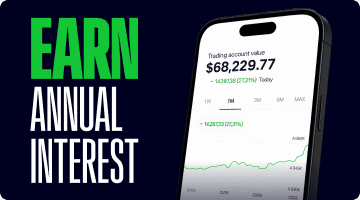The 2026 Market Setup: 5 Assets Making Headlines
As investors enter 2026, they do so after a year defined by strong equity performance, easing...
Elevate your investing – and your lifestyle – with eToro Club UAE
From expert service to premium perks, eToro Club membership is designed to help you invest smarter...
UK Stocks in Focus: Top 5 Picks To Watch
The UK economy of 2025 stands at a critical crossroads. While recent trade arrangements with the US...
Breaking the Comparison Trap: Jessie Leong on Why Your Financial Journey Is Never "Apples to Apples"
For writer and How I Fund This founder Jessie Leong, the hardest step wasn't learning the jargon,...
Will 2025 Finish with a Santa Rally?
It has been a challenging few weeks in the markets for investors. From a major tech sell-off to...



